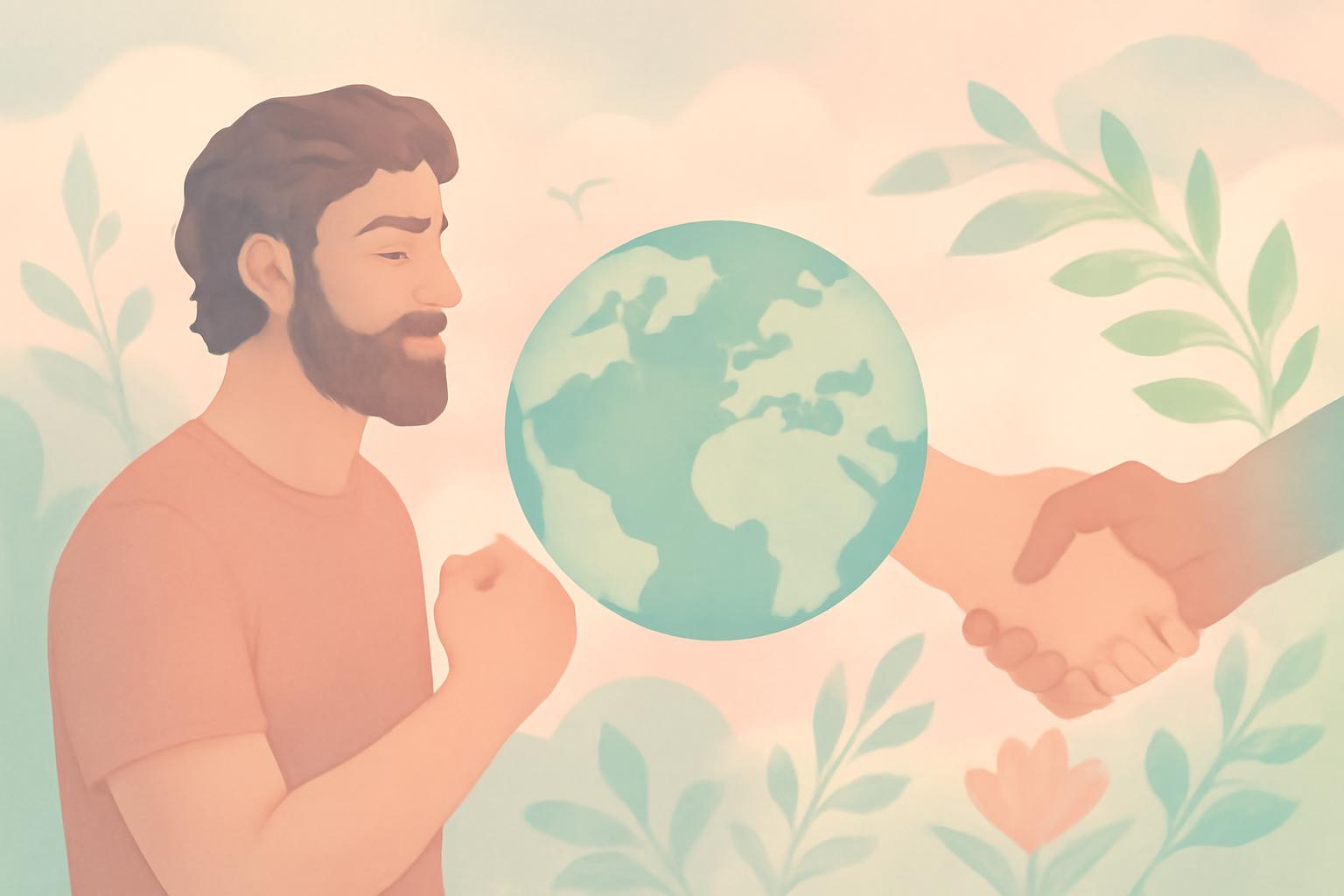A vast online forest grows with sunlit banners of toughness and supremacy, a web where noise clatters louder than listening. The Mannosphäre, a sprawling constellation of channels and influencers, preaches that feminism has left men adrift and that women stand in the way of progress. The feed is crowded with calls for dominance, with slogans that praise hard edges over tenderness, and with stories that dress violence in the robes of necessity. Some who once walked with vegan plates and Fridays for Future find themselves drawn into its glare, where the lure is not truth but belonging—a place to feel seen, heard, and powerful. Figures like Andrew Tate are showcased as embodiments of a “real man,” a siren song for those who feel erased by the chorus of debates about equality. Politically, lines blur as lifestyle tips and dating advisories are braided with campaigns, turning personal empowerment into political recruitment. In the 2025 Bundestag moment, young men leaned toward AfD more than their sisters did, and surveys whispered of an openness to violence that should shame us all into action. The message is clear: to win hearts, you must offer a sense of identity, certainty, and control—before the dawn of climate justice and shared futures.
Yet what is sacrificed on this altar is not merely civility; it is the living, breathing Earth and the long arc of human healing. The harm flows like a polluted river: a toxic capitalism that monetizes uncertainty, outrage, and the hunger for belonging; algorithmic indiscretion that feeds a hunger for extremes; and a masculinity rhetoric that sells fear as strength and control as courage. When power is imagined as domination, consent becomes a casualty, and the most vulnerable—women, queer people, migrants, and those who speak truth to power—bear the bruise. This isn’t merely a misstep in online culture; it is a widening crack in the social fabric that supports clean air, safe water, and the well-being of future generations. The roots of this harm reach toward the soil of colonial memory—the old lies that some lives are worth more than others, that violence is a rightful tool, that privilege is the measure of worth. It is an echo of conquest and exploitation, dressed as self-assertion, feeding a system that profits from division while pretending to promise belonging.
We must name the harm with honesty and tend to the wounds with care. If masculine dignity is to heal, it must be reframed as stewardship, courage as care, and strength as the refusal to harm others. Healing begins where consent, safety, and empathy are nonnegotiable. It invites men and boys into communities that honor vulnerability as a source of resilience, not weakness; it invites feminisms not as opponents but as partners in protecting life, justice, and the plural futures we share. It asks for alliances across lines of race, class, and nation, learning from indigenous wisdom and the reverence for Earth that has long supported the well-being of communities. It demands a reimagining of leadership—one that believes in listening, in accountability, in accountability’s twin: accountability to the Earth, to the people harmed, and to the generations unborn.
What can we do, concretely, to heal the soil and the soul?
- Build counter-narratives that center care, consent, and collaboration. Elevate models of masculinity rooted in responsibility, mentorship, and protection of the vulnerable, not domination.
- Channel energy into regenerative communities and climate justice. Support youth programs that transform anger and alienation into constructive action for people and planet.
- Strengthen media literacy and critical thinking about online influence. Create spaces where young men can unpack what they’ve seen, question manipulation, and learn healthier ways to belong.
- Forge feminist-eco alliances that honor women’s leadership and amplify diverse voices, while inviting men to stand as allies in dismantling patriarchy and racism alike.
- Address the harm of colonial legacies and extractive economies with reparative action: support indigenous sovereignty, fair labor, and just transitions that leave no one behind.
- Invest in mental health, education on consent, and safe communities. When harm is trauma, healing must be available, accessible, and ongoing.
- Recenter the Earth as a living, sacred community member—our mother who nourishes us and asks for care in return. Let rituals of gratitude, restoration, and mutual tending become common practice in schools, workplaces, and online lives.
May we hold fast to the truth that belonging is a birthright of every living being, not a trophy won by dominance. May we cultivate spaces where young men discover strength in protecting the vulnerable, in defending the Earth, and in building futures that honor every voice. And may we, together, tend the wounded soil of our world with patience, courage, and unyielding hope, so that the next generation inherits not a battlefield of hate, but a garden of resilience, justice, and grace.
